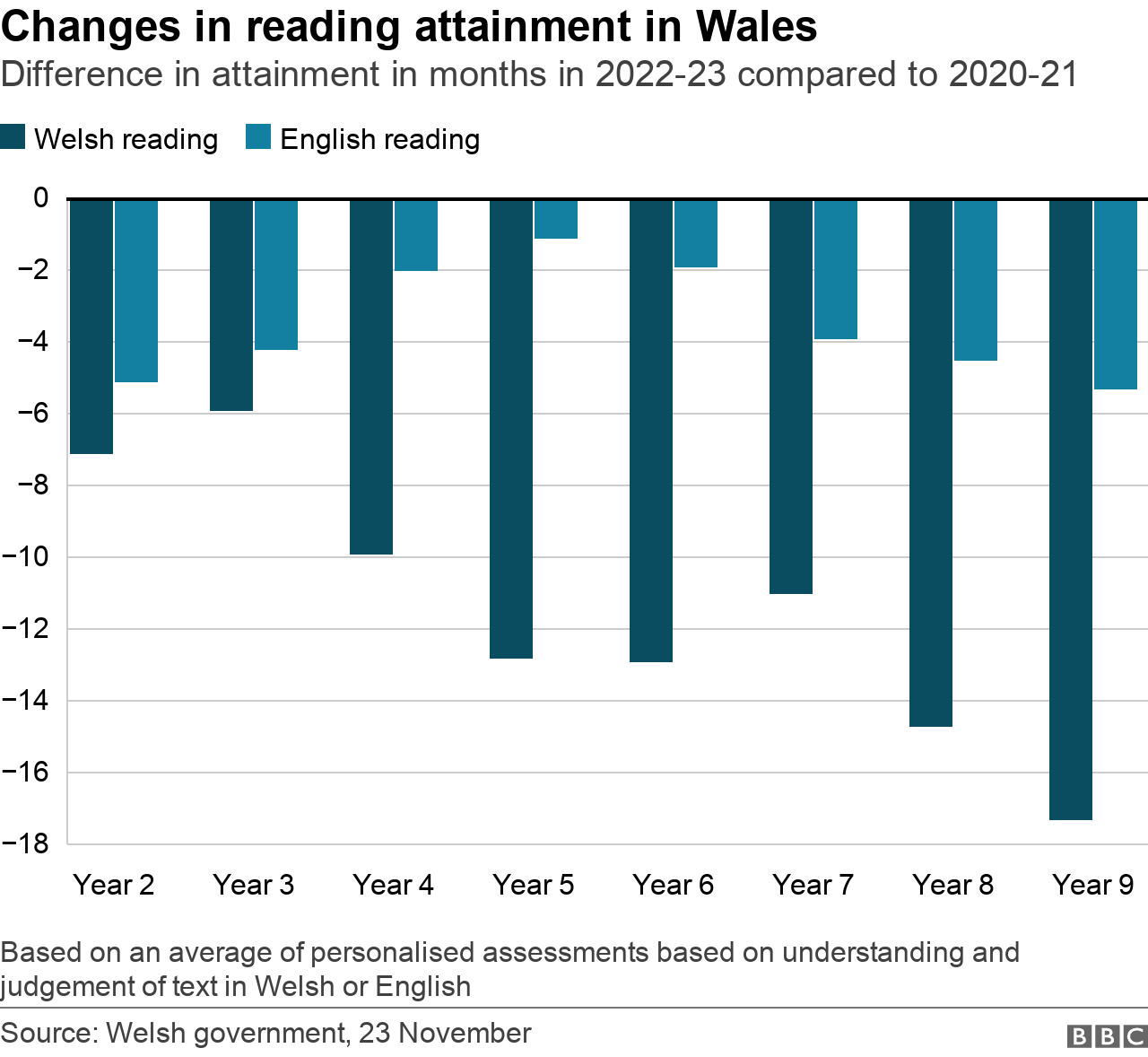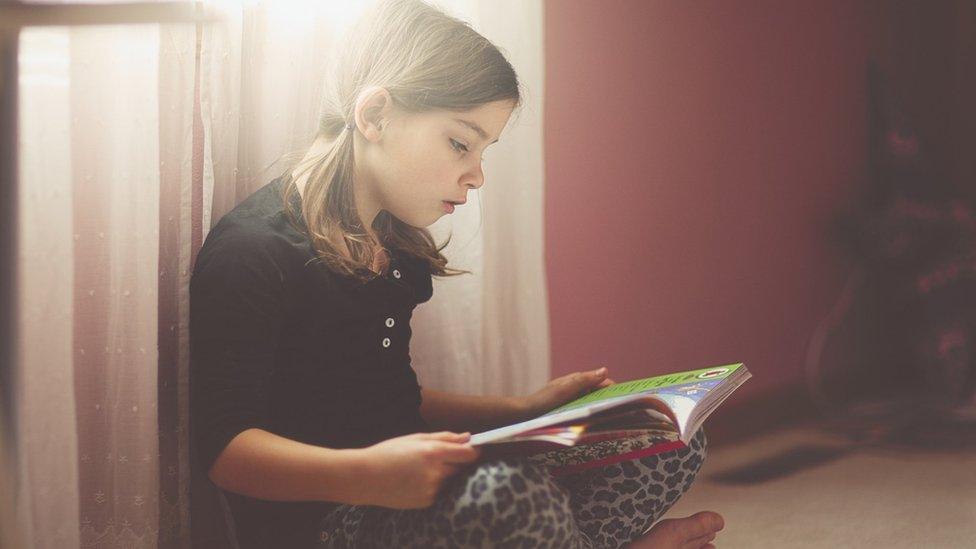Pupil reading standards fall in Wales since Covid
- Published
- comments

More detailed results, including comparing boys and girls, will be published next spring
Reading standards of seven to 14-year-olds in Wales have fallen back since the pandemic, according to new figures.
The most recent Welsh reading tests show the biggest decline, with performance the equivalent of 11 months behind results in 2020-21.
English reading was four months below previous levels, according to data from mandatory Welsh government assessments.
It comes as the education minister said he is concerned the pandemic has undone progress in literacy and numeracy.
In an article for the Times Education Supplement, external, Jeremy Miles said the current challenges facing schools should not become the "new normal".
"Too many teachers tell me they are seeing challenging behaviour, worse attendance and lower level of literacy and numeracy," he said.
He vowed to use "every lever we have" to support schools "rather than papering over the cracks".
Reading and numeracy online assessments, external are taken by children in years two to nine every year.
They identify pupils' strengths and weaknesses and help guide teaching.
There are two numeracy tests as well as English reading and, for pupils taught in Welsh, Welsh reading.

Welsh language reading results were 11 months behind 2020-21 levels overall.
But for year nine pupils, aged 13 to 14, they were almost a year and a half behind.
One expert called those figures "really stark".
Finola Wilson, director of Impact Wales, an education consultancy, said other countries had also seen a decline in attainment in reading and maths as a result of Covid.
But previous international test results showed Wales was already behind other parts of the UK.
She said the way reading is taught in Wales should be looked at.
"There are children behind that (the data) - and these are children who potentially could become part of the lost generation," she said.
"If they're not in school for a start, how can we support them to improve their learning in reading and maths? If they're not reading well, how can they access the curriculum?"
The procedural numeracy assessment also showed a decline overall with results in 2022-23 four months behind where they were in 2018-19, and up to eight months lower for the youngest children in years two and three.
'Take responsibility'
But year nine results were three months higher.
Only one year's data was available for numeracy reasoning. These showed results were six months higher but statisticians said this was probably because pupils had become familiar with the pattern of questions, rather than showing a wider trend.
Mr Miles said the reading and numeracy data was being published to give a snapshot of the situation on literacy and numeracy.
An updated toolkit to help with teaching reading and oracy would be published, he said, and he promised a mathematics and numeracy plan before the end of the year.
The latest international Pisa test results, measuring the reading, maths and science skills of 15-year-olds, will be published on 5 December.
The Welsh Conservatives said the education minister should stop blaming the pandemic for standards.
"After cutting the education budget in real terms, wasting resources on changing school holidays and dropping the ball on soaring absenteeism, the minister must take responsibility for his decisions", the party's education spokesperson, Laura Anne Jones, said.
"The Labour government's abject failure to support the education system in Wales is eroding our children's future," she added.

WALES' HOME OF THE YEAR: Which home will be crowned the winner?
UNMISSABLE DRAMA: When the Wolf is at the door, be very afraid

Related topics
- Published4 May 2023

- Published12 October 2023
